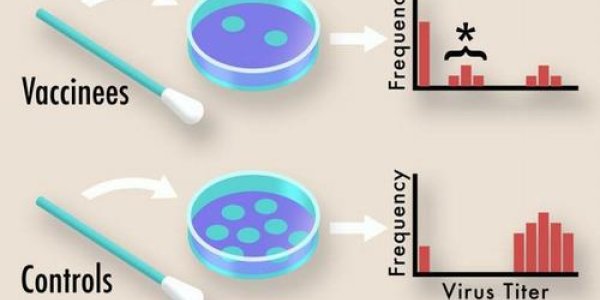America is producing more Ph.D.s than ever but federal funding for academic grants cannot keep pace with the expansion in university halls, bolstered by well-financed Science, Technology, Engineering and Math (STEM) outreach campaigns which promote the idea that technology is important for the 21st century, but then say that means working at a school.
Meanwhile, tenured researchers are delaying retirement because they are still doing valuable work. With more applicants and experienced scientists with a proven track record competing at a later, is America in danger of a young brain drain?
Yes, argues Johns Hopkins University President Ronald J. Daniels, because the proportion of principal investigators with a leading National Institutes of Health grant who are 36 years old or younger dropped from 18 percent in 1983 to 3 percent in 2010. Funding is obviously much higher than in 1983, well beyond ordinary cost of inflation increases - the NIH got only $4 billion then, compared to $27 billion in 2003 when President Bush and a Republican Congress were in office.
Adjusted for inflation, the NIH budget would only have been $9.5 billion, instead it went up 675% in 20 years.
That's the America that doesn't care about science?
The fewer young grants is clearly not due to funding. It is instead explained by the fact that there is no forced retirement. People overall are healthier. Smart, healthy people who want to do research don't have to quit or be fired to make way for new people.
In a system reliant on government, it is not going to expand indefinitely. Yes, President Bush and Republicans a decade ago clearly loved science, since they doubled the budget for the NIH and increased it for NASA after declines during the Clinton administration (Clinton is now lauded for running a budget surplus with all of that spending on science he did not do) but every president cannot double funding.
Obviously Johns Hopkins wants to promote the government grant system and even increase it. They get $600 million each year just from the NIH. But is it really a brain drain if PhDs go into the corporate world? They're still doing science, they are still in America. The belief that only universities do 'real' science and everything else doesn't count is a newer one, and in some ways it has attracted people who don't want the pressure of having to promote the 21st century future we are told we need. Even by the time the movie "Ghostbusters" came out in the mid-1980s, that stereotype was so well-known that it was funny:
If young talent continues to leave academia, Daniels says, it could lead to a gradual evaporation of new discoveries, the loss of future leaders and mentors, a less diverse workforce and the loss of academic scientists at what should be a pivotal point in their career.
It's a mystery why academia will be less diverse if there is competition. Certainly science academia, and academia overall, is far less diverse than corporate America or America in general. It's not easy finding Republicans or handicapped people with tenure this century. Yet those things do not show up on grant applications so why it correlates to science funding is unclear. Most labs at universities are more like a small business - they do not have any diversity requirement because the university shields them with its overall representation. A company that wants to get money from the Federal government, however, does have to prove its diversity - so companies are penalized in ways that grant applicants are not.
And why no new discoveries? This implies that before the federal government increasingly took control over academic science after World War II, quality science was not done. That is in defiance of Silicon Valley and all of those Nobel prizes. Sometimes the argument is that corporations will no longer do the research so the federal government must, but that is also in defiance of history and economics - the private sector still does over 50 percent of basic research in America and almost 100 percent of applied research. Corporations may not do it if they can spread the risk out to a nation of taxpayers rather than their own shareholders, but to say they won't is not evidence-based. Silicon Valley uses nothing from academia, companies do their own science.
What may be a concern is if the funding system favors incumbents - because one thing government-controlled science doesn't do well is make the products that politicians insist are needed for the new century and most of the people who thrive in the existing system are not going to be the boldest. Paraphrasing Samuel Broder, former Director of the National Cancer Institute, if it had been up to the NIH to create a centralized program to cure polio, we'd have the best iron lungs in the world but we still wouldn't have a vaccine in 2015. The one thing the government does not do well is solve problems. When the Ebola media craze took off, the ZMapp drug had been languishing - the venture capital market for Ebola in America is not great and the NIH had no interest, the only people who helped them was the Department of Defense. NIH Director Francis Collins lamented the NIH budget decline as the problem and got another $90 million out of Congress, without mentioning that they had gotten $330,000,000,000 since 2001 and hadn't cared about Ebola at all. Meanwhile, the NIH spent $10 million on a game about eating that no one ever played.
That's the system Johns Hopkins wants to keep?
Of course not. That video game company knew how to work the system and it was successful at it because government control of science and technology does a poor job at actually seeing the big picture. That frustration leads to brain drain more than less funding does.
How so? A researcher who gets a grant and then fails is unlikely to get another grant - they will not have a top-tier journal credit or any results other than mumbling about a null hypothesis. It's no surprise to people in the private sector that the government funding system favors incremental bland successes rather than bold efforts with high risk-reward ratios. It rewards people who know how to work the committee system and go to all the right conferences.
So it may be that a reduced opportunity for government funding will mean more young scientists going into the private sector, where companies do not care about 9 strikeouts because they know the 10th could be a home run. That's not a detriment to America, it is just a detriment to Johns Hopkins and other large schools that want to promote the idea that they deserve all that money.
True fairness would mean Johns Hopkins would be sharing their funding with a whole lot of small schools. Instead, Johns Hopkins is simultaneously promoting equality for young researchers while saying their own funding should be based on meritocracy.
Daniels nonetheless does say just that - there should be a quota system for young researchers. Not the best research, based on age.
What happens when a young researcher who got one of these special grants then leaves the 'kiddie pool' and has to compete in the general R01 system? They don't get a grant and their academic career is over, just three years later. That's not better for young PhDs, they are now three years behind their peers who went into the private sector in the first place.
"Other countries are marshaling the will and resources to invest in the next generation of young scientists," Daniels says. "A comparable solution in the United States will require a comparable commitment on the part of all actors in the biomedical science ecosystem. ... Our next generation of scientists, and indeed our next generation of science, demands nothing less."
Yet none of those other countries lead the world in science output or Nobel prizes, so that argument falls a little flat.
One thing does make sense: Refining the peer review model to create a more accepting environment for inexperienced scientists and daring proposals.
But that is exactly the thing that government committees don't do well.
Journal article: http://www.pnas.org/content/early/2015/01/02/1418761112




